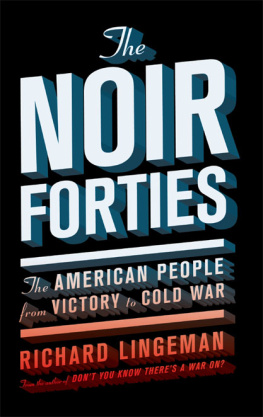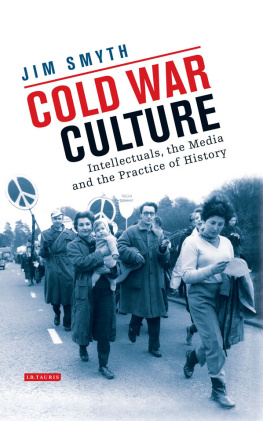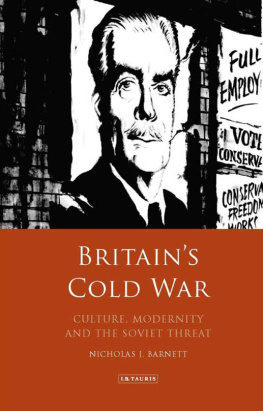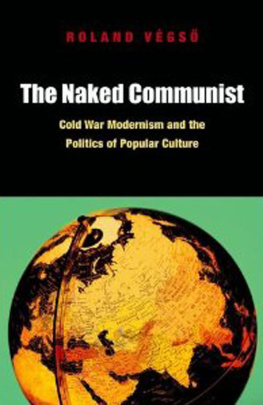The
NOIR
FORTIES
ALSO BY Richard Lingeman
Drugs from A to Z: A Dictionary
Dont You Know Theres a War On? The American Home Front, 19411945
Small Town America: A Narrative History, 1609The Present
Theodore Dreiser: At the Gates of the City, 18711907 (Vol. I)
Theodore Dreiser: An American Journey, 19081945 (Vol. II)
Theodore Dreiser: An American Journey (abridged edition)
Sinclair Lewis: Rebel from Main Street
Double Lives: American Authors Friendships
The Nation Guide to the Nation
The
NOIR
FORTIES

The American People from
Victory to Cold War
RICHARD LINGEMAN

Praise for Noir Forties
Lingeman evokes a mood, place, time, and a feeling that only someone whod been there can. Incredible writing.... Remarkable insight. Thank you for giving the world this gift. Oliver Stone, Academy Awardwinning film director, screenwriter, and producer
Lingemans discussion of films is never less than interesting, and he understands the paradox of a politically repressive period leading to some of the most inventive films ever made.... Along with movies, The Noir Forties contains fine summaries of other artsLingeman is especially good on the exuberant mishmash of populist forms of music that emerged after the war. New York Times Book Review
[A]n innovative fusion of autobiography and conventional history against a backdrop of noir. Columbia Journalism Review
[A] richly textured and deeply felt book. Los Angeles Review of Books
Theres a lot of material here and it all flows together seamlessly. This is a great book for buffs of both film and history persuasions. Library Journal, starred review
Lingeman attributes [noir] films popularity to a correlation between these themes and the contemporary national psyche, elegantly using them as an accessible window into the spirit of an era struggling to digest the horrors of war, the dislocations of conversion to a peacetime economy and anxieties about the Soviet Union. Kirkus Reviews
[A] candid reappraisal of Americas postwar era.... [T]he books greatest triumph is in its depiction of the gradual change in the American populaces collective journey from the pessimism of the Great Depression, through the hope of a burgeoning postwar middle class, to a climate of fear in the McCarthy era and on into the cold war.... [A]n insightful and illuminating blend of history and cultural criticism. Publishers Weekly
[S]eamlessly written and stuffed full of original scholarship.... Lingeman beautifully blends the arts and music into his sweeping analysis of the politics of the period. Thus the voices of the peopleincluding artistsare heard here. U.S. News & World Report
Lingemans writing is clear and readable.... Both lovers of film noir and fans of social and cultural history will find this an excellent read. Portland Book Review
The Noir Forties is a rather eclectic book which employs elements of autobiography, history, and cultural studies.... [A] provocative book. History News Network
A journalist of eclectic accomplishment... Lingeman is at home with his subject.... [E]ngaging. Washington Independent Review of Books
[Lingeman] has an interesting mind. Books & Culture
[The Noir Forties] does help us understand that timeand our time. Pittsburgh Post-Gazette
[E]nlightening.... [Lingeman] excels at portraying the uncertain postwar mood and the way that films noir were uniquely able to capture that mood. Barnes & Noble Review
In The Noir Forties, Richard Lingeman offers a vivid reexamination of the cultural, psychological, and political tenor of the age of anxiety. Lingeman powerfully evokes the milieu of the late forties.... The Noir Forties captures an incisive slice of American life during a period of quiet but seismic change. History Book Club
[Lingeman] does much more than root out the source of his own disaffection with the American mainstream. Rather, using film and other forms of media as evidence, Lingeman brilliantly traces the evolution of cultural and political attitudes that defined an entire generation of Americans. Phi Beta Kappa News
Lingeman takes us past the platitudes about the Greatest Generation to chart the painful transition from the collective ethos of the New Deal and wartime unity to the anxieties of the Cold War and a renewed rightwing offensive against working Americans. Compelling and enlightening. Stephanie Coontz, author of A Strange Stirring: The Feminine Mystique and American Women at the Dawn of the 1960s
This is an astonishing creation, a poignant, beautifully written history and memoir of a forgotten era. Richard Lingeman aptly calls it the Noir Forties, and his stylish prose blends the personal with delightful vignettes of American culture and politics. It is an elite brand of peoples history. Lingemans is a voice from the foxhole, soft-spoken and gentlemanly, but no less biting and acerbic than H. L. Menckens. Kai Bird, Pulitzer Prizewinning biographer and journalist, co-author with Martin J. Sherwin of American Prometheus: The Triumph and Tragedy of J. Robert Oppenheimer
Reading Richard R. Lingemans masterful account of how America moved from its hottest to its coldest war is more fun than going to the movies. Part memoir, part cultural, political, and social history, his penetrating look at the postwar years through the lens of the noir films of the forties is wholly original, a literary coup. Victor S. Navasky, Publisher Emeritus of the Nation and author of Naming Names
By combining a thoughtful exploration of Hollywoods dark vision of a violent and immoral society with a penetrating overview of the nations shift to the right during the late 1940s, Richard Lingeman helps us understand how the US could abandon its early postwar dream of peace and social justice for the conflict-ridden reality of the Cold War. Its a chilling narrative that speaks all too forcefully to our present grim situation. Ellen Schrecker, author of Many Are the Crimes: McCarthyism in America
Richard Lingemans lively and wide-ranging political and cultural survey captures the curious mix of self-confidence, ambition, anxiety, and moral exhaustion that defined the national psyche in the years between VJ-Day and the onset of the Korean War. Lingeman is a sympathetic chronicler of the generation that fought the Second World War. As we say farewell to the last surviving World War II vets in the decade to come, The Noir Forties will keep alive the world they encountered and made in the five years that followed the war, years when they were young and brave and seeking and healing. Maurice Isserman, professor of history at Hamilton College, author of If I Had a Hammer: The Death of the Old Left and the Birth of the New Left
Richard Lingeman ingeniously uses the noir films of the forties to plumb the unconscious of the national psyche and give us a deeper understanding of this pivotal period. Salted by his wry reminiscence of serving as a counter-intelligence agent in Japan, the author weaves his own experience of the era into a fascinating narrative. Dan Wakefield, author of New York in the Fifties
Copyright 2012 by Richard Lingeman







